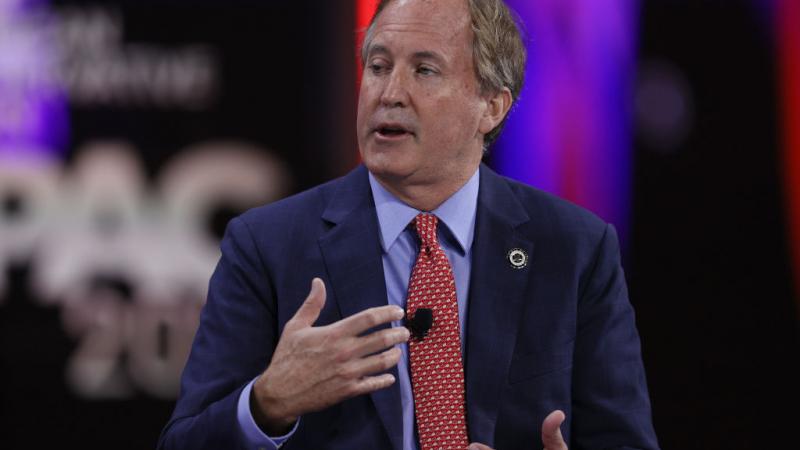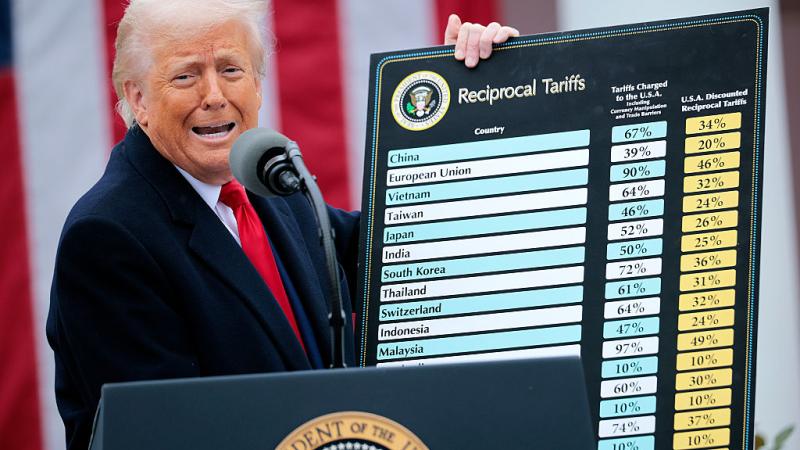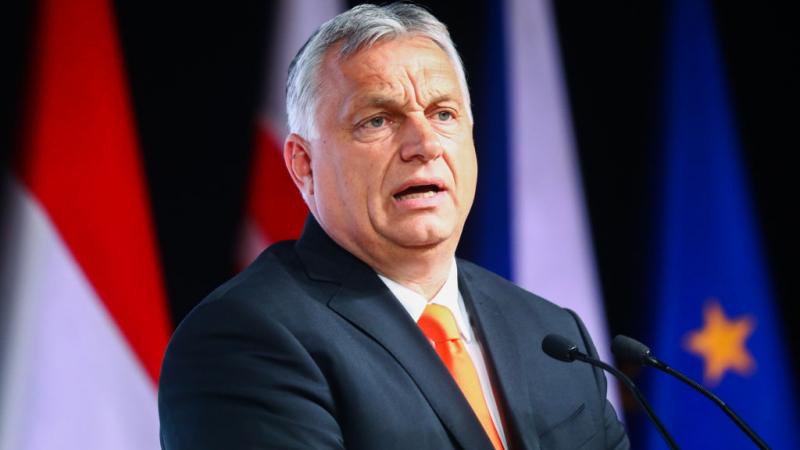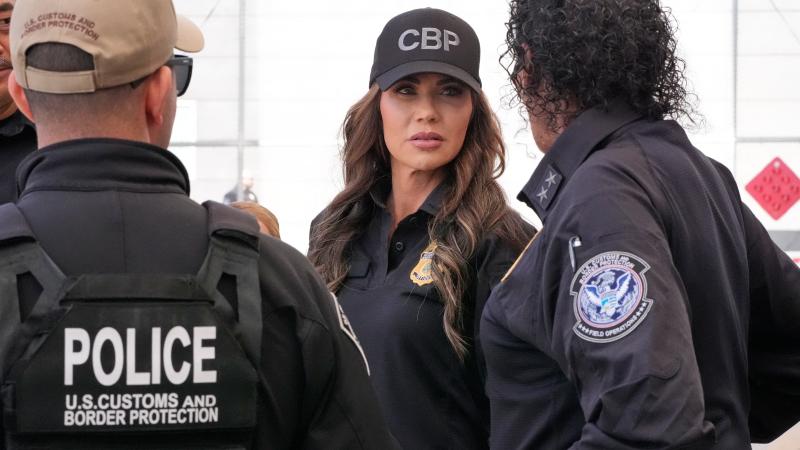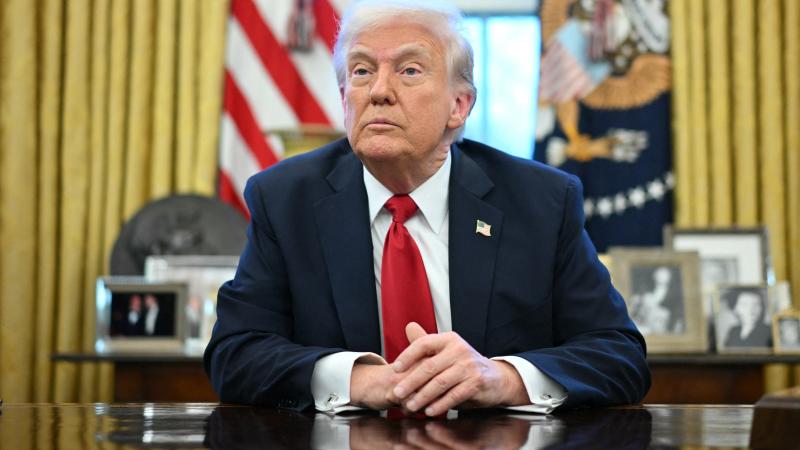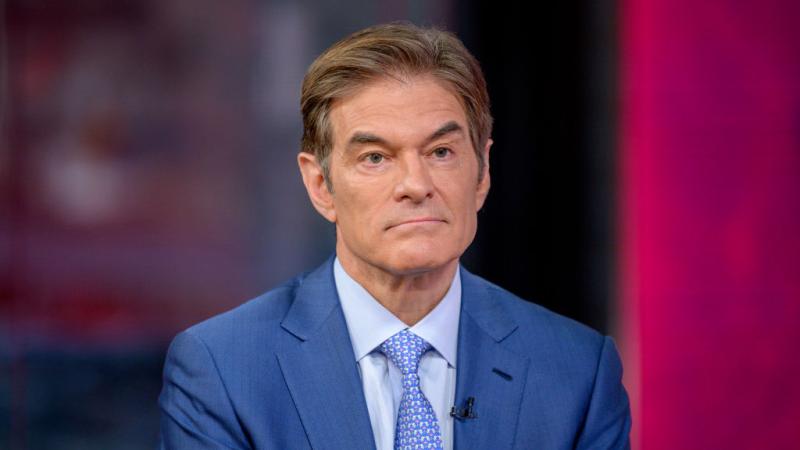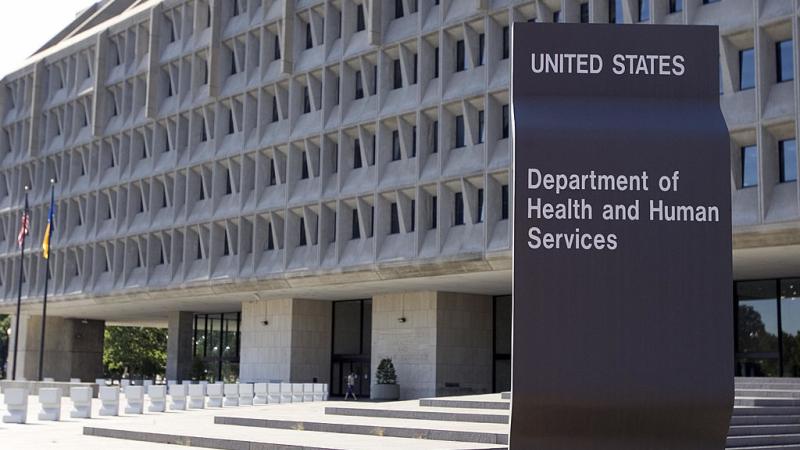Same judge blocking CIA efforts to fire DEI employees hamstrung the Steele Dossier prosecution
The Bush-appointed judge who blocked efforts by the CIA to fire employees involved in DEI programs also serves on the FISA Court — is the same judge who undercut one of John Durham's Russian collusion hoax prosecutions.
The judge who this week blocked efforts by the CIA and the Office of the Director of National Intelligence to fire employees involved with divisive DEI programs previously helped kneecap one of special counsel John Durham’s cases tied to the Russia collusion hoax.
Judge Anthony Trenga, appointed to the U.S. District Court for the Eastern District of Virginia by President George W. Bush, blocked efforts by the CIA and the ODNI to terminate intelligence officers who had been tied to so-called “diversity, equity, and inclusion” efforts during the Biden administration.
That preliminary injunction requires the agencies to hear any "requested appeal from any decision to terminate him or her, consistent with the steps set forth in CIA Regulation 4-16, including to permit Plaintiffs to submit 'written comments' explaining why they should not be terminated, to provide Plaintiffs with a written notification of the Director’s decision, and to provide reasonable notice of the status of any pending appeal."
Trenga, the judge who also oversaw Durham’s case against the Russian-born Igor Danchenko, kneecapped the special counsel ahead of the October 2022 trial, including ruling that Durham could not use details from the FBI’s prior counterintelligence investigation into Danchenko. He was accused of being the main source for British ex-spy Christopher Steele’s debunked dossier. Trenga limited a host of other evidence Durham had sought to show the jury as well.
During the trial, Trenga dealt Durham's case another blow as he dismissed one of the false-statement charges brought against Danchenko, who was acquitted of all charges in October 2022. The Eastern District of Virginia is known for handling many national security cases, and Trenga has also been a member of the Foreign Intelligence Surveillance Court since May 2020, and has been the presiding judge on the secretive court since May 2023.
Trump's "Anti-DEI" executive order
Earlier this year, President Donald Trump issued an executive order titled “Ending Radical And Wasteful Government DEI Programs And Preferencing” on the day he was sworn in for his second term. The executive order is sweeping in scope, and applies to all federal agencies and their contractors. Trump also ordered each department and agency head to “terminate, to the maximum extent allowed by law, all DEI…offices and positions” and “all DEI…performance requirements for employees, contractors, or grantees.”
“The Biden Administration forced illegal and immoral discrimination programs, going by the name ‘diversity, equity, and inclusion’ (DEI), into virtually all aspects of the Federal Government,” Trump said as he ordered the Office of Management and Budget to “coordinate the termination of all discriminatory programs, including illegal DEI” mandates, programs, and policies within the government.
The president followed this up with an executive order on “Ending Illegal Discrimination and Restoring Merit-Based Opportunity” the next day, arguing that “these illegal DEI…policies also threaten the safety of American men, women, and children across the Nation by diminishing the importance of individual merit, aptitude, hard work, and determination when selecting people for jobs and services in key sectors of American society, including all levels of government” as he again ordered his leaders to terminate such programs from their departments and agencies.
The Justice Department said last month that Director of National Intelligence Tulsi Gabbard and CIA Director John Ratcliffe were following through with Trump’s presidential directive when they moved toward firing intelligence officials tied to DEI.
But, as of earlier this week, Trenga blocked the termination efforts by the CIA and ODNI following a lawsuit by anonymous intelligence community employees. The judge did not respond to requests for comment from Just the News about this ruling — nor about his handling of John Durham’s case against Igor Danchenko.
Durham and Danchenko
Igor Danchenko was on the FBI’s payroll as a confidential human source from March 2017 to October 2020 before he was charged in November 2021 with five counts of making false statements to the bureau. The FBI agent assigned to be the handler for Danchenko testified that he sought to have the bureau pay Danchenko more than $500,000.
According to Durham, Danchenko had anonymously sourced a fabricated claim about Trump campaign manager Paul Manafort to Hillary Clinton ally Chuck Dolan, who spent years, including 2016, doing work for Russian businesses and the Russian government. Danchenko denied this, and Trenga tossed that charge out before the jury could decide on it.
Durham’s indictment also said Danchenko lied to the FBI about a phone call he claims he received from Sergei Millian, an American citizen born in Belarus, who the Steele source had allegedly told him about a conspiracy of cooperation between former President Donald Trump and the Russians — collusion allegations which the special counsel said were baseless. Despite its lack of merit, the narrative of Trump being in league with Putin has been the centerpiece of many Democratic candidates' campaign advertising, including Joe Biden's.
Durham's indictment of Danchenko argued that the Steele source falsely told the FBI in 2017 that, in late July 2016, he had received a phone call from Millian. He claimed Millian told him about a well-developed conspiracy of cooperation between Trump and Russians and further allegedly falsely claimed Millian had agreed to meet with him in New York in 2017. Danchenko denied this, and was found not guilty related to all charges.
Biden DOJ's "17 errors and omissions"
DOJ inspector general Michael Horowitz’s lengthy 2019 report criticized the Justice Department and the FBI for at least 17 “significant errors and omissions” related to the FISA warrants against Trump campaign associate Carter Page, who was never charged with a crime and has denied any wrongdoing. Page filed a lawsuit in 2020 against James Comey, Andrew McCabe, Peter Strzok, Lisa Page and others, including the Department of Justice.
Federal D.C. District Court Judge Dabney Friedrich, who was appointed in Trump's first term, dismissed the claims, which ranged from violations of federal regulations as well as variously styled privacy claims. Page appealed the dismissal to the Court of Appeals for the District of Columbia. Oral argument was held last September and the parties await a ruling.
Horowitz said FBI interviews with Danchenko “raised significant questions about the reliability of the Steele election reporting” and cast doubt on some of its biggest claims, saying Danchenko's account "was not consistent with and, in fact, contradicted” the allegations of a “well-developed conspiracy” laid out in Steele’s dossier.
The dossier was created after Steele was hired by the opposition research firm Fusion GPS, which was itself hired by Perkins Coie and Marc Elias, the general counsel for Clinton’s campaign. Danchenko was allegedly Steele’s main dossier source as he did work for Steele’s firm, Orbis Business Intelligence.
Danchenko did not respond to requests for a comment from Just the News about the Durham prosecution and about Trenga’s handling of the case in 2022.
Prior investigation into Danchenko ruled inadmissible
Trenga blocked Durham’s efforts to tell the jury about details from a prior counterintelligence investigation into Danchenko. The special counsel had wanted to introduce findings from that investigation, which unearthed connections between Danchenko and suspected Russian intelligence officers while he worked at the Brookings Institution, to be used at the false statements trial.
“During his January 2017 interview with the FBI, the defendant initially denied having any contact with Russian intelligence or security services but later, as noted by the agents, contradicted himself and stated that he had contact with two individuals who he believed to be connected to those services,” Durham told the judge in the lead-up to the trial.
“The Government should be able to introduce evidence of this prior counterintelligence investigation (and that facts underlying that investigation) as direct evidence of the materiality of the defendant's false statements" argued Durham. "Such evidence is admissible because in any investigation of potential collusion between the Russian Government and a political campaign, it is appropriate and necessary for the FBI to consider whether information it receives via foreign nationals may be a product of Russian intelligence efforts or disinformation.”
Durham’s team also argued in court that simply mentioning the investigation’s existence and its closure should not be an option because it would be misleading to the jury without further details.
Durham prosecutor Michael Keilty told Trenga the month before the trial started that “the FBI closed the investigation” years prior “because they mistakenly believed” that Danchenko had left the United States, “but it wasn’t because they hadn’t found anything on Mr. Danchenko.” Keilty argued the counterintelligence investigation’s findings were relevant because of the bureau’s later need to determine if the dossier was true, adding that “there was a huge fear in the FBI that this was Russian disinformation.”
The prosecutor summarized his argument by saying the FBI was concerned about Russian disinformation in the dossier, Danchenko made false statements about the sourcing of the dossier’s claims, and knowing the truth could have led the FBI back to the prior counterintelligence investigation.
Trenga repeatedly pressed Keilty on this, and the prosecutor said the counterintelligence investigation’s findings would help highlight the materiality of the purportedly false statements Danchenko later made to the FBI about the dossier.
Durham had previously highlighted how Danchenko was the subject of an FBI counterintelligence investigation as a potential “threat to national security” from 2009 to 2011. Durham revealed that the bureau had apparently flubbed its counterintelligence investigation into Danchenko, including ending efforts to pursue a FISA against him, when “the investigation into the defendant was closed in 2010 after the FBI incorrectly believed the defendant had left the country.”
The FBI itself had revealed that Danchenko “was in contact with a known Russian intelligence officer” in September 2006 and that “during these conversations, the Russian Intelligence Officer invited” Danchenko “to the Russian Embassy to see his office” and that Danchenko “told the Russian Intelligence Officer that he was interested in entering the Russian diplomatic service one day.” The Russian intelligence officer allegedly contacted Danchenko four days later and informed him they could meet that day to work “on the documents and then think about future plans.”
Later, in October 2006, Danchenko allegedly contacted the Russian intelligence officer seeking a response “so the documents can be placed in tomorrow’s diplomatic mail pouch.” The FBI said it “further identified” in 2005 that Danchenko made “contact with a Washington, D.C.-based Russian officer,” and “it was noted” that Danchenko and the Russian officer “seemed very familiar with each other.”
The bureau said that “investigators subsequently learned” that Danchenko “departed the United States in September 2010” and “further investigation determined that his visa was not renewed,” and so “the FBI withdrew the FISA application request and closed the investigation.”
“The record documenting the closing of the investigation stated that consideration would be given to re-opening the investigation in the event that [Danchenko] returned to the United States,” the FBI’s report said. “In December 2016, the Crossfire Hurricane team identified the Primary Sub-source used by Christopher Steele and, at that time, became familiar with the 2009 investigation."
Danchenko’s lawyers argued to Trenga that “the fact of the prior counterintelligence investigation of Mr. Danchenko should be admitted” but that actual details from the investigation should not be, contending that “the details of that investigation are not relevant and, more importantly, are unproven, would involve multiple levels of hearsay to establish the basis for the investigation let alone prove the allegation, and resulted in no negative action or conclusion.”
Trenga weighed whether evidence about the prior counterintelligence investigation should have been allowed in the case, and sided with Danchenko’s defense team, because the Federal Rules of Evidence require that a judge weigh the truth-finding value of the evidence in question against creating an unfair prejudice against the defendant in the minds of the jury.
“The Court will exclude the details of the investigation,” Trenga ruled. “The probative value of these unproven allegations, i.e., Danchenko sought to facilitate the sale of classified information and that he had contact with Russian intelligence services, which would have to be established through multiple levels of hearsay, is of only marginal relevance in terms of proving the materiality of Danchenko’s allegedly false statements. The evidence’s low probative value is substantially outweighed by the danger of unfair prejudice and confusion of the issues.”
The dossier’s phony "pee tape" allegations
Durham argued the month before the trial that alleged lies which Danchenko had told the FBI, in particular misleading about the baseless so-called “pee tape” allegations about Trump, should be allowed as evidence at the trial. Democrats and legacy media repeated that salacious but disproven allegation as a "fact."
“In June 2016, the defendant reported to Christopher Steele certain allegations regarding Donald Trump's purported sexual activity at the Ritz-Carlton Moscow. The Steele Report reflecting these allegations was dated June 20, 2016,” Durham told Trenga. “That Report states, among other things, that ‘Source D,’ described as a close associate of Trump who had organized and managed his recent trips to Moscow, had confirmed that Trump had engaged in lurid sexual activity at the hotel. The Report goes on to say that the Ritz-Carlton Allegations had also been confirmed by ‘Source E,’ a senior (western) member of staff at the hotel.”
Durham said that “the defendant's efforts to falsely attribute the Ritz Carlton Allegations to Source D (who the defendant said ‘could be referring to Millian’) and to Source E (Bernd Kuhlen) were part and parcel of the very same efforts to fabricate information that underlie false statements charged in the Indictment.”
Durham interviewed and wanted to call Bernd Kuhlen, the German-born then-general manager of the Ritz-Carlton in Moscow, whom Durham told the court would testify he had no recollection of meeting Danchenko, no knowledge of the salacious allegations attributed to him, and was the only “western” senior hotel staff member.
“The Government intends to prove at trial that the defendant falsely sought to attribute the Ritz Carlton Allegations to Mr. Kuhlen, and, as referenced above, to Sergei Millian as part of his work on the Steele Reports that are described in the Indictment,” Durham wrote the month before. “The Government intends to present evidence that undermines the defendant’s claim that he met with the hotel managers about this issue.”
Durham wrote that “it strains credulity … to believe that Ritz Carlton managers — with no apparent relationship to the defendant — would confirm lurid sexual allegations about a U.S. presidential candidate to a guest, let alone a stranger off the street.”
The tape in question was an alleged recording that the Steele dossier said Russians possessed depicting Trump with prostitutes at a hotel in 2013 during a Miss Universe pageant in Moscow. Trump has vociferously denied the claims, and no evidence has ever emerged to support its existence.
The lawyers for Danchenko added that “what Donald Trump did or did not do at a hotel in Moscow” and anything their client may have said about it is “entirely unrelated” to what is charged in the indictment against him. They said Durham was attempting to confuse issues, prejudice their client, and mislead the jury — and asked the judge to put “clear limitations” on what evidence could be used at trial.
Trenga sided with Danchenko, with the judge ruling that “the Dolan-related Ritz allegations do not qualify as direct evidence as they are not ‘inextricably intertwined’ or ‘necessary to provide context’ to the relevant charge” against Danchenko.
“Danchenko’s allegedly false statements regarding his sourcing of the Ritz-Carlton allegations do not qualify as direct evidence,” Trenga ruled. “At bottom, the government has charged Danchenko with making five false statements about his sourcing for the Steele Reports pertaining to two sets of lies, i.e., lying about Dolan’s lack of contribution and/or involvement with the Reports and lying about his belief that he received a call and information from Millian. As the Court signaled at the hearing, the relevancy and probative value of the Ritz-Carlton allegations is questionable.”
Durham also argued that Danchenko had misled the FBI when he allegedly denied to them that he had spoken with anyone about his work for Steele. Durham argued that “the defendant's false denial to the FBI that he had ever disclosed to anyone his working relationship with Orbis is admissible to prove that the defendant engaged in an overarching ‘plan’ to deceive the FBI about the manner and methods by which he conducted his work for Orbis (including the collection of information contained in the Steele Reports).”
Danchenko’s lawyers countered that “these purported statements are immaterial, irrelevant, and impermissible character evidence.” Trenga agreed.
More evidence kept from jury
Durham also sought to introduce evidence he said showed Danchenko had a history of fabricating evidence. Ahead of the trial, Durham sought to introduce a February 2016 email from Danchenko to his former employer Cenk Sidar, in which Sidar asked Danchenko for recommendations to improve a report. In response, Durham said Danchenko seemed to recommend using misleading or fabricated sources.
“Emphasize source" the email read. "Make them bold or CAPITALISED [sic],” Danchenko wrote. “The more sources the better. If you lack them, use oneself as a source (‘Istanbul-Washington-based businessman’ or whatever) to save the situation and make it look a bit better.”
Durham’s team had sought to argue that this email from Danchenko “demonstrates that the misattribution of sources was an intentional feature of his business intelligence work," but the judge disagreed.
“Under the government’s theory of the case, Danchenko fabricated sources of information that he provided to Steele, including fabricating Millian as a source,” Trenga ruled. “Accordingly, the government seeks to introduce the Sidar email to prove Danchenko’s common plan or absence of mistake or accident.”
The judge added, “The government appears to seek to use this email to paint Danchenko as having a dishonest character and thus a propensity to fabricate and falsify sources. Therefore, this email is inadmissible.”
Durham had also sought to admit three emails from Millian to Dmitry Zlodorev, an employee of RIA Novosti, a Russian state-run media outlet, to demonstrate that Danchenko never actually received a call from Millian. One of the emails was from July 2016, while two were from July 2020. Trenga said the July 2016 email would be allowed in at trial, but that the later emails from Millian would not.
Durham had told the court that search warrants allowed him to obtain key emails showing “Millian did not call, email, or meet with the defendant, and the defendant knew he had not received a call from someone who he believed to be Millian” in the summer of 2016. Within the July 2020 emails, Millian said that “Steele, it seems, made Danchenko the fall guy, but Danchenko himself made several statements that were difficult to understand, for example, about the call with me.” Millian also wrote in the email that Danchenko was “supposedly to meet with me (but the meeting didn’t take place).”
Danchenko’s lawyers called these emails “irrelevant and hearsay” as they argued the judge should block them from being shown to the jury. Trenga agreed, holding that “The Court concludes that the July 26, 2016 email is admissible in its entirety,” Trenga ruled, adding, “In contrast, the Court will exclude both of Millian’s July 2020 emails. The Court must consider the changed circumstances against which those emails were sent.”
One charge dismissed
Trenga had ruled in September 2022 that he wouldn't dismiss the entire indictment against Danchenko, but he also expressed skepticism about some of the false statements charges brought by Durham. “The motion is denied,” the judge ruled against Danchenko the month before the trial, but he added that “I think it’s an extremely close call, particularly with count one” related to longtime Hillary Clinton ally Chuck Dolan."
During that pre-trial hearing, Danchenko lawyer Stuart Sears began by telling the judge that “this isn’t even a close call, in my opinion” because “a literally true statement cannot be charged as a false statement.” Sears repeatedly pointed out that the FBI had asked Danchenko if he had ever “talked” with Dolan about the dossier, with the defense arguing “talked” doesn’t necessarily include written communications.
Durham countered that “one has to look at these matters in context” and that in context, it was clear the FBI was asking Danchenko about any and all communications he may have had about the dossier with Dolan, arguing that Danchenko was “keenly” and “fully aware” of “the fact of what the FBI was looking for” as the bureau attempted to ascertain the truthfulness or falsity of the dossier.
Durham pointed out that Danchenko brought a copy of the Democratic-funded dossier to an FBI meeting and said he had reviewed it, showing he knew what the FBI was interested in. Durham said the jury, not the judge, should decide whether the evidence shows that “he did know it was untrue.” He also pointed out that Danchenko did not proactively provide the FBI with the email exchange with Dolan that was key to one of the false statement charges.
The next month, Trenga threw out one of the five charges brought by Durham against Danchenko during the October 2022 trial.
Emails don't count
Danchenko had emailed Dolan in August 2016 to solicit any “thought, rumor, or allegation” about Manafort while informing Dolan he was working on a “project against Trump.” Dolan wrote back, “I had a drink with a GOP friend of mine” and then made claims about Paul Manafort’s reasons for departing Donald Trump’s presidential campaign.
The claim seemed to make its way into a Steele dossier report. Dolan testified he never met with a “GOP friend” in relation to this information that he passed to Danchenko but had pulled the claim from cable news.
But the judge said because the email exchange was written, rather than verbal, it did not meet the standard definition of the word “talked.” “That the FBI wanted to obtain as much information as possible doesn’t change the meaning of the words used,” Trenga ruled. “Here the government has not presented any evidence that Mr. Danchenko understood the word ‘talk’ to mean more than the standard accepted meaning.”
Trenga said that “the standard definition of talk means spoken speech” and so it is “literally true” that sending an email does not meet the definition of talking, and thus “criminal liability” could not be applied.
Thus was one of five false statements charges tossed out. The jury would find Danchenko not guilty on the other four.
The Durham Report and the FISA Court
When the special counsel’s report was released in May 2023, John Durham seemed to indicate that part of the reason why Danchenko had been found not guilty by the jury was due to the limitations on evidence and the tossing of one of the charges by Trenga.
“Following a one-week trial, and before the case went to the jury, the judge dismissed Count One of the Indictment pursuant to Federal Rule of Criminal Procedure 29,” Durham wrote, adding, “Following two days of deliberations, the jury concluded that the case had not been proven beyond a reasonable doubt.” Under that rule, "The court may on its own consider whether the evidence is insufficient to sustain a conviction."
Durham’s report also concluded that “neither U.S. law enforcement nor the Intelligence Community appears to have possessed any actual evidence of collusion in their holdings at the commencement of the Crossfire Hurricane investigation.” The special counsel noted that “the FBI ignored the fact that at no time before, during, or after Crossfire Hurricane were investigators able to corroborate a single substantive allegation in the Steele dossier reporting.”
Trenga, aside from overseeing criminal cases, also holds a key seat on the FISA Court as the presiding judge. He was preceded as the presiding judge by Judge Rudolph Contreras, who himself had taken over as the presiding judge from Judge James Boasberg, who himself has blocked Trump deportation efforts.
The Justice Department sent a filing to the FISA Court in early June 2023, noting that Durham had finished his investigation and filed his final report.
“Although the Report is unclassified, a classified appendix to the Report includes information collected pursuant to the Page FISAs in three paragraphs,” the DOJ told the FISA Court, adding that “the Government recommends that members and limited staff” from the House Intelligence, Senate Intelligence, House Judiciary, and Senate Judiciary Committees — as well as the so-called Gang of Eight “be given restricted access to the unredacted Classified Appendix.”
Trenga ruled later that month that “the government may give access to the Page FISA information in the Classified Appendix” from Durham’s report to the specified members of Congress.
Trenga also handling DEI-related lawsuits
Trenga was also the judge overseeing a lawsuit last month brought by former intelligence community employees allegedly tied to DEI programs. The suit was filed against the CIA and the ODNI, and against Tulsi Gabbard and John Ratcliffe. Trenga ruled in favor of the anonymous intelligence officers.
Kevin Carroll, the lawyer for the anonymous employees, filed the initial lawsuit and motion for a temporary injunction on February 17. He said that his clients “are nonpartisan civil servants serving in a vital national security role as highly-trained U.S. intelligence officers” who “currently serve in temporary assignments” related to DEI, arguing that “none of these officer’s activities was or is illegal, and at no time have the agencies employing Plaintiffs contended that they individually engaged in any misconduct, nor are they accused of poor performance.”
“Here, Plaintiffs—career foreign intelligence officers—face termination en masse only because of their temporary assignment, and a domestic political dispute between the Republican and Democratic parties regarding the merits of DEI programs,” the lawyer argued to Trenga. “Plaintiffs’ imminent termination is therefore arbitrary, capricious, an abuse of discretion, not in accordance with IC regulations, and unsupported by any evidentiary record whatsoever. It is also contrary to Plaintiffs’ constitutional rights under the First and Fifth Amendments. Plaintiffs are being fired because of their assumed beliefs about a domestic political issue.”
The CIA and ODNI, through the Justice Department, filed their initial opposition to request for a restraining order on February 20. “No matter which way Plaintiffs attempt to frame their current circumstances, this is ultimately a dispute about federal employment. And not just any federal employment — employment with the Central Intelligence Agency and the Office of the Director of National Intelligence, in whose respective leaders Congress has vested substantial discretion to terminate the employment of personnel when, in their discretion, they deem such termination "necessary or advisable in the interests of the United States,” Erik Seibert, the U.S. Attorney for the Eastern District of Virginia, told Trenga.
The Justice Department included a February 18 directive from Ratcliffe, where the CIA director said that “I have determined that it is necessary or advisable in the interests of the United States to terminate all of the employees of the former DIO” — the Diversity and Inclusion Office. Ratcliffe said he had planned to offer the former DEI officials the options to retire, enter the Deferred Resignation Program, voluntarily resign, or be terminated.
Siebert also told Trenga that “ODNI does plan to pursue the separation of certain employees previously working in DEIA positions” and that “ODNI has not at this time issued any final decision regarding the separation of such employees.” The anonymous intelligence officers filed an amended complaint on February 24, and the Justice Department filed further arguments on February 26.
In response to these filings, and following a court hearing, Trenga initially denied the request for a temporary restraining order in a February 27 decision. This would change a month later.
Carroll, the lawyer for the intelligence officers, filed a new motion for a temporary restraining order on March 27. The lawyer asked Trenga to block the termination of his clients from the intelligence community, to order CIA Director Ratcliffe to personally review and reconsider his termination decisions, to order Ratcliffe and Gabbard to state why each individual termination somehow serves the national interest, and to allow his clients to be considered for reassignment within the intelligence community.
Trenga held a hearing that day, and then issued a same-day preliminary injunction to block the CIA and ODNI from terminating any of the intelligence officers tied to DEI. That injunction requires court authorization before terminating the anonymous plaintiffs.
The CIA and ODNI did not respond to requests for comment from Just the News about whether they plan to continue litigating the case.
The Facts Inside Our Reporter's Notebook
Links
- appointed
- blocked efforts
- kneecapped the special counsel
- debunked dossier.
- dealt Durham another heavy blow
- not guilty.
- member of the Foreign Intelligence Surveillance Court
- issued an executive order
- executive order
- said
- blocked the termination efforts
- lawsuit
- confidential human source
- five counts of making false statements
- pay Danchenko more than $500,000.
- Hillary Clinton ally Chuck Dolan
- Democratic candidates' campaign advertising
- not guilty
- criticized
- noting
- the opposition research firm
- Orbis Business Intelligence.
- Danchenko and suspected Russian intelligence
- Durham told the judge
- told
- counterintelligence investigationâs findings were relevant
- subject of an FBI counterintelligence investigation
- revealed
- FBI summary
- argued
- Trenga ruled.
- baseless so-called âpee tapeâ allegations
- told
- said
- interviewed and wanted to call
- wrote
- special counsel wrote
- argued to the judge.
- told the court
- immaterial, irrelevant, and impermissible
- said
- judge ruling
- Trenga ruled.
- argued
- told Trenga
- summarized
- Trenga ruled.
- email from Danchenko
- sought to argue
- argued
- Trenga ruled
- Federal Rules of Evidence
- Danchenko never actually received a call from Millian.
- key emails showing
- Millian said
- âirrelevant and hearsayâ
- Trenga argued
- expressed skepticism
- threw out
- not guilty
- released
- Federal Rule of Criminal Procedure 29
- in limine
- Federal Rule of Evidence 404(b)
- report
- concluded
- presiding judge.
- preceded
- blocked Trump deportation efforts.
- sent a filing
- ruled later that month
- sided with the anonymous intelligence officers.
- initial lawsuit
- motion
- argued
- filed
- the U.S. Attorney
- told
- directive from Ratcliffe
- Deferred Resignation Program
- told Trenga
- amended complaint
- further arguments
- denied the request
- decision.
- new motion for a temporary restraining order
- lengthy filing
- argued
- same-day preliminary injunction
- said


